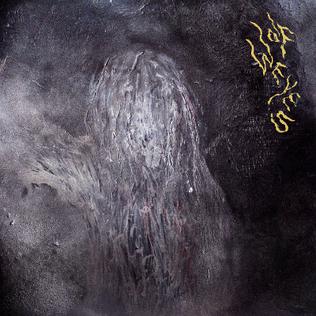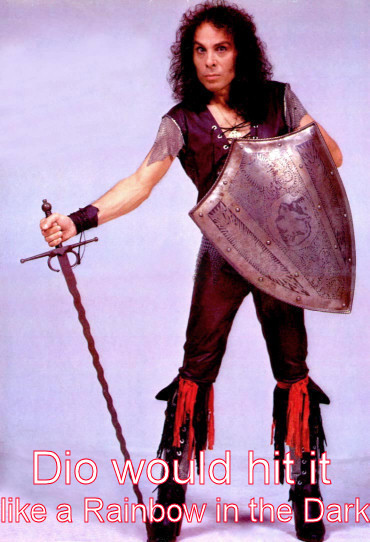
March 3, 1997; Century Media
http://www.jester-records.com/ulver/ulver.html
Although Norwegian band Ulver still exists today and is still led by Patton-esque mad scientist and vocalist Kristoffer Rygg (A.K.A. Garm, Trickster G, God Head), the Ulver of the mid-nineties bears zero resemblance to the band that released coldly atmospheric electronic/industrial albums like 2005's Blood Inside and 2007's Shadows of The Sun. Instead they shared a place in the mid-period Scandinavian black metal scene, a musical movement best known for collectives of church-burning paganist misanthropes such as Emperor, Mayhem and Darkthrone. However Ulver's aims were always considerably less about the corpse paint/inverted cross/battleaxe image and more about artistry (which is not to say Emperor weren't seriously badass in their own way, but I digress), releasing a "trilogie" of albums with a high degree of craft and conceptual trappings. Their first LP, 1994's Bergtatt, was a landmark in the genre for incorporating olden Scandinavian folk forms, right down to the use of archaic Danish lyrics. They followed that with an album of classical folk titled Kveldssanger. However Ulver's third album Nattens Madrigal: Aatte Hymne til Ulven i Manden (Madrigal of The Night: Eight Hymns to the Wolf in Man) totally rejects any clean vocals and almost all of the acoustic guitar in lieu of an utterly savage, necro as fuck 44-minute blast of black metal.
Now, traditionally black metal has prided itself on a very lo-fi, primitivist aesthetic, rejecting clinical studio sheen for sound quality that often sounds like a demo. Most "kVLT" bands in the genre say this raw approach adds to the authenticity and "evil" atmosphere of the recording but frankly it usually just sounds like what it is, which is poorly recorded shit. Take for example Darkthrone's overly lauded "classic" Transylvanian Hunger. The instruments have zero power--the amateurishly played guitar sounds like a tinny buzzsaw, the drums have all the weight of pencils tapping a desk, the bass is totally inaudible, and the vocalist shrieks about Satan and evil and things that bump in the night while sounding like a cartoon goblin. Purists might cream themselves over this, but the neophyte will probably find this approach more laughable than sinister.
Nattens Madrigal is no exception to the lo-fi sound quality. Legend has it, the band took the label's money, put an 8-track in the middle of the Scandinavian forest, recorded the album, and then spent the rest of the cash on Armani suits, whores, booze and nice cars. Even if this wasn't the case, the album totally sounds like it. The production quality is so trebly, so harsh that it fundamentally changes how you listen to the music, and will actually take you aback the moment "Hymn I" tears through your speakers. It's the sonic equivalent of bleeding rare meat. The tremelo riffing of the guitars and Garm's horrific foreign-language shrieks dominate all generally leaving the drums a distant din of crashing cymbals and snare, and the bass, when heard, has virtually no punch to it.
However.... Nattens Madrigal is the total antithesis of goofy. It actually totally accomplishes the brutally cold and grim feel that most black metal bands strive for and generally fall short of, and not only that, it's packed with riffs and melodies that those bands would kill for (probably literally). Just to put an exclamation point on Ulver's astounding talent, the initial minute-long assault of blacker-than-black riffing in "Hymn I" quickly gives way to a beautiful and peaceful interlude of acoustic picking--the only one on the whole album--and then shifts into an electric variation on the same melody that will knock you out of your fucking chair.
The whole album is a formidable blurred maelstrom, with only the aforementioned acoustic break and the occasional nocturnal segue between tracks functioning as breathers. Tracks burst in with a few squeaks of feedback and end arbitrarily, often still blasting along after five minutes. There are no solos and few leads, and the ones present are usually squelched by the stormy production. However, despite the generally monolithic structure, there are plenty of noteworthy moments. The fade-in intro to "Hymn IV," accompanied by Garm's feral vocals is truly epic. "Hymn VI" begins with a triumphant major-key riff that sounds like something that would be played in Valhalla, while the main riff of "Hymn VIII" will incite rabid headbanging in even the most staid listeners. The album closes out on a magnificent crescendo of distortion and crashing drums that fills you with a feeling that you've listened to something truly immense, and all accomplished without a single cheesy keyboard or silly orchestral flourish (Cradle of Filth, I'm looking at you).
Nattens Madrigal (along with the previous two releases in the trilogie) is the embodiment of black metal excellence, its naturalistic atmosphere the result of careful craft and played with a precision that defies the genre. Ulver's early work remains incredibly influential and has been drawn on by a number of more ambitious genre-busting bands such as Agalloch and Wolves In The Throne Room, both of whom have gone on to release their own masterpieces. This is a necessary album for fans of boundary-pushing metal, totally worth the insane import price.
Translation:
Anyone new to black metal should probably try out Emperor, Immortal, Enslaved and Bathory first. Despite the relatively recent Pitchfork fascination with the genre, it still remains a tough listen for most and the over-the-top trappings of the scene don't exactly help, so bear that in mind. Ulver's Bergtatt is also a perfect warmup for this album, and an excellent release in its own right.
-SJ











